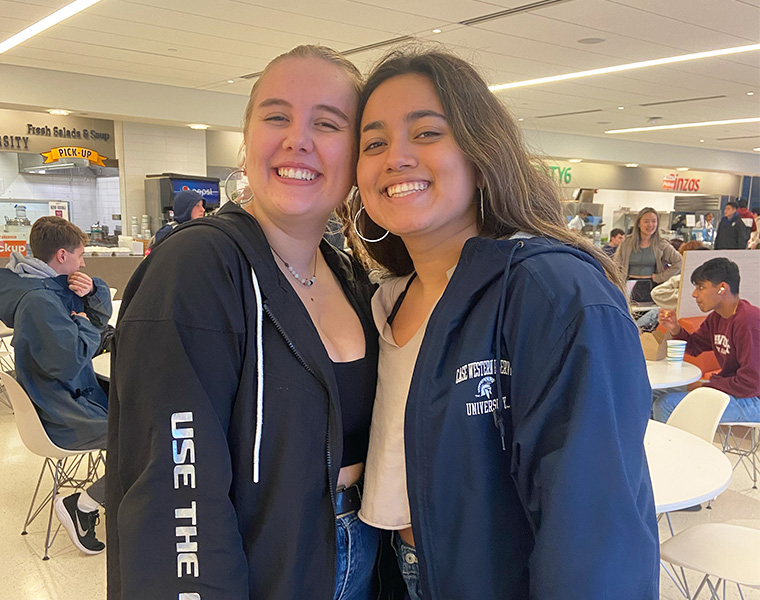Each fall, National Mentoring Day (Oct. 27) celebrates the incredible impact mentor-mentee relationships offer—one that occurs in countless forms across the Case Western Reserve University campus.
From the Collegiate Connections Program, which pairs select incoming students with upper-class peers who have similar interests, to the Veale Institute for Entrepreneurship’s Venture Mentor Program, which offers expertise to rising entrepreneurs, the university community need not look far for mentorship support.
To recognize National Mentoring Day, The Daily sat down with just a few of the many mentor-mentee pairs who support each other in their efforts at CWRU. Take a look at their answers to our questions below.
Paola Van der Linden Costello and Nilany Rodriguez
Paola Van der Linden Costello (from Monterrey, Mexico) and Nilany Rodriguez (from Chicago, Illinois) have different academic interests: The former, a member of the Class of 2024, is majoring in neuroscience and sociology with a minor in chemistry, and has her sights set on a PhD program; while the latter, Class of 2026, is studying pre-med, neuroscience and sports medicine with hopes of becoming a neurosurgeon.
They chose to attend CWRU for one shared reason, however: research opportunities. Learn how Van der Linden Costello is sharing her insights with Rodriguez as her mentor through the Collegiate Connections Program.
Q: Why did you choose to pursue taking part in a mentorship program?
Van der Linden Costello: I would have liked to have an upper-class student in my freshman and sophomore years to ask questions and help me explore different paths.
Rodriguez: I really was worried about going to school out of state, and with as many opportunities as [CWRU] has to offer I really wanted some guidance on how to best succeed.
Q: What’s been the most rewarding part of this mentor/mentee relationship for you?
Van der Linden Costello: I love being able to help Nilany with the questions she has, whether it is about the study abroad process, research opportunities over the summer, class materials and course structures, or how to get involved with different groups on campus. Beyond that, [we] have developed a close relationship where we can study together, have lunch and do other fun things!
Rodriguez: Paola has become not only my mentor but my friend and someone I have begun to look up to. She has accomplished so much at [CWRU] and is planning on doing so much more with her career in the future; it is just really inspiring how she handles every situation she is confronted with. She has helped me look into research opportunities already as a freshman and has also helped me stay engaged in campus life! I am really grateful to say that I have her in my life!
Q: What would you tell other students considering a mentorship program (either as a mentor or mentee)?
Van Der Linden Costello: College should be a process of exploration and self discovery. Being able to rely on someone to help you through that and point you in the right direction goes a long way! From a mentor’s perspective, what you learn from your mentee is also extremely rewarding.
Rodriguez: It helps having an upperclassman in your corner as a [first-year] because everything is brand new and sometimes you really just need some guidance to figure out what the best next step is for you. It is also an easy way to make a friend on campus!
Anne Straits and Alyssa Lanum
A junior from Walnut Creek, Ohio, Anne Straits is majoring in biomedical engineering with hopes of one day working in industry and contributing to projects related to tissue engineering or 3D bioprinting. Her mentee Alyssa Lanum, a first-year student from Hazleton, Pennsylvania, also is majoring in biomedical engineering, and knows she wants a job involving coding. Learn how the two support each other in their mentorship relationship through the Collegiate Connections Program.
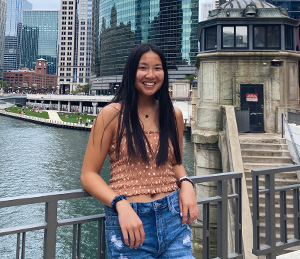
Q: Why did you choose to pursue taking part in a mentorship program?
Straits: I am particularly passionate about mentorship, have been extremely grateful to receive it, and want to support others in a similar way.
Lanum: I chose to pursue Collegiate Connections since I am a first-generation college student, and I had yet to learn how to navigate college, especially at a top-tier university.
Q: What’s been the most rewarding part of this mentor/mentee relationship for you?
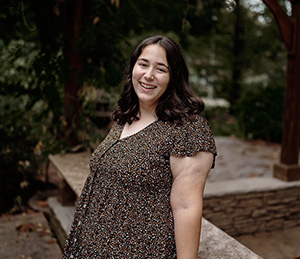
Straits: The most rewarding part of this mentor/mentee relationship has been watching my mentee, Alyssa, grow and begin to define what the CWRU experience will look like and mean for her.
Lanum: The most rewarding part has been to have someone to reach out to whenever I need support on campus, whether it is for school, thoughts about after college, or college life.
Q: What would you tell other students considering a mentorship program (either as a mentor or mentee)?
Straits: For other students considering a mentorship program, I would say, go for it! You’ll gain a new friend, have someone to go to for advice, and be introduced to a new perspective!
Lanum: [Like Anne said], go for it! College is a big adjustment, but it is excellent to know that you always have someone to reach out to if you ever need support!
Ofer Reizes, Bill Harte and Yehe Liu
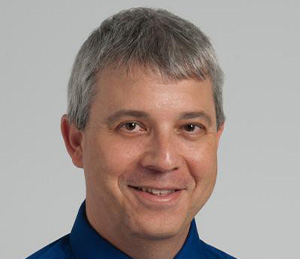
Yehe Liu first arrived at Case Western Reserve from Nanjing, China, in 2010 as an undergraduate student, first earning a dual BS/MS degree in biomedical engineering before joining Michael Jenkins’ lab as a PhD student in 2015. Today, he’s nurturing a startup called OpsiClear—and he’s taking advantage of mentorship advice from two experts along the way.
Associate Professor Ofer Reizes and Clinical Professor Bill Harte—two founding members and early adopters of the Veale Institute’s Venture Mentor Program—are helping Liu as he forges his path as an entrepreneur. Learn how the relationship is aiding Liu’s journey.
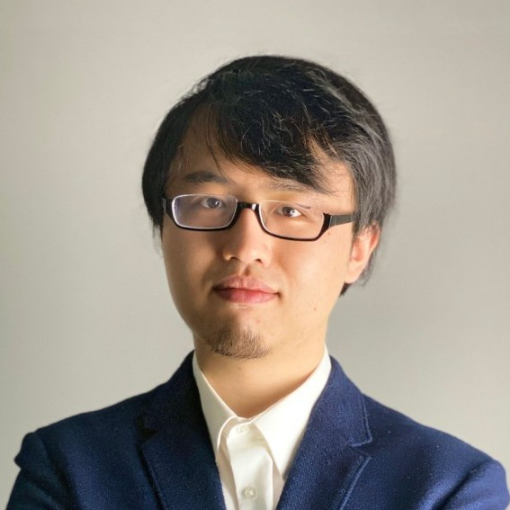
Q: What’s been the most rewarding part of this mentor/mentee relationship for you?
Reizes and Harte: In general [we] find most rewarding the growth of the mentees and seeing their entrepreneurial light come on. That moment when they get it and begin to focus on where there is a need for their technology/concept. It’s great hearing the new and exciting ideas that [mentees like Liu] bring to the table.
Liu: The mentors are very knowledgeable in all kinds of aspects of translational research and startup development (medical-related in particular) and are always able to answer my questions. They also pointed me in the right direction and connected me to people who helped with the development of my startup.
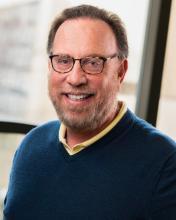
Q: What would you tell other students considering a mentorship program (either as a mentor or mentee)?
Reizes and Harte: Be prepared to get out of your comfort zone—like the quote, “Life begins at the end of your comfort zone” by Neale Donald Walsch. [We] would also tell any prospective mentee that learning to interview others for information will help them in all their future endeavors.
Liu: As a mentee, I would say don’t hide the problems and prepare to ask good questions.
Callahan Rios and Justine Allen
Fourth-year student Callahan Rios (from St. Paul, Minnesota) knows what her next steps will be after graduating with a major in biomedical engineering and minors in psychology and mechanical design and manufacturing; she’ll be going into industry at Procter & Gamble and ultimately earning her MBA to go into engineering management. For first-year student and New Orleans native Justine Allen, biomedical engineering is of interest as well—but her career goals remain unshaped. That’s why she’s grateful to have Rios’ guidance as her mentor in the Collegiate Connections program. Learn more about the pair.
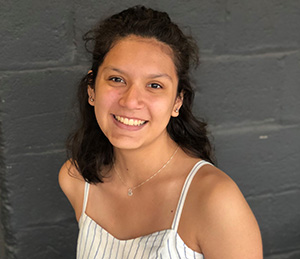
Q: Why did you choose to pursue taking part in a mentorship program?
Rios: I thought it would be very fun to be a mentor and support an underclassman through their transition to college.
Allen: My high school mentor and I had a great relationship and I wanted to try to get help adjusting to a new environment again.
Q: What’s been the most rewarding part of this mentor/mentee relationship for you?
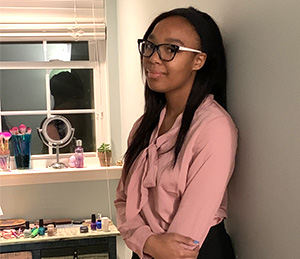
Rios: The most rewarding part is hearing about the successes of my mentee, even if I had nothing to do with them, because it’s very uplifting to see someone succeed in something that you know they put a lot of effort into.
Allen: Having someone who’s done what I’m doing now. My mentor has helped me answer questions that I didn’t know I had about [CWRU] and all of the opportunities available, as well as helped me with basic things like physics homework.
Q: What would you tell other students considering a mentorship program (either as a mentor or mentee)?
Rios: I was never a mentee so I know less about that perspective, but anyone considering being a mentor should definitely do it because it is so much fun to guide another person through things that you might have felt lost going through yourself. It’s also a great way to branch out and meet new people!
Allen: [I’d say] go for it if they are looking to get personal advice about their goals. My mentor knows me really well and her advice is incredibly personal, detailed and helpful.

